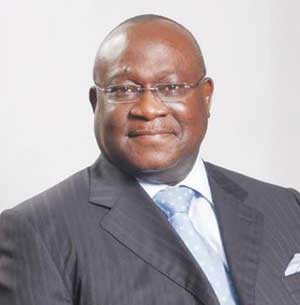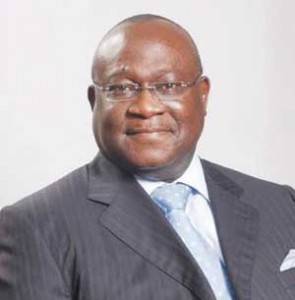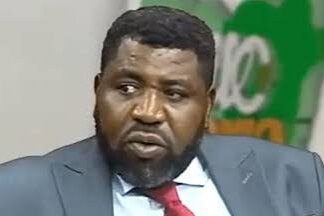Relief was etched on the faces of stakeholders when SO&U Group Managing Director, Udeme Ufot, was announced Advertising Practitioners Council of Nigeria (APCON) Chairman last week, 18 months after the tenure of Lolu Akinwunmi expired.
The appointment ended the leadership rift in APCON, caused when Ngozi Emioma paraded himself as Chairman. Stakeholders in advertising, outdoor, media independent, advertisers, and others rejected his purported appointment by the federal government.
Ufot’s appointment, however, comes at the time when the industry is challenged over political advertising and a lack of proper implementation of the newly gazetted fifth code.
Contenders
His appointment followed calls by the Head of Advertising Sectorial Group (HASG) to President Goodluck Jonathan to rescind the appointment of Emioma, which violated the APCON Act.
A letter written to the minister of information on January 28 by the office of the Secretary to the Federal Government, Anyim Pius Anyim, said the appointment of Ufot should be effected immediately, in line with Section 2 (1) (a-d) of the APCON Act.
Ufot was appointed from among contenders who included Ade Akinde (Advertising Standard Panel Chairman), Funmi Onabolu (former Association of Advertising Agencies of Nigeria (AAAN) President), and Akinbobola Babu (Media Link Chairman).
Crisis point
The advertising industry is the only sector in the economy that can afford to be run for two years without the head, partly because the government does not see it as a key player.
For instance, the Nigerian Communication Commission (NCC), Nigerian National Petroleum Corporation (NNPC), and the like cannot survive a day without a substantive or acting chairman.
The politics of appointing APCON chairman was riddled with controversy, as the government did not pick a substantive chairman immediately after Akinwunmi’s term expired.
When Emioma surfaced in the middle of last year to claim the position, stakeholders quickly denounced his appointment.
AAN President, Kelechi Nwosu, said the council purportedly appointed and headed by Emioma flouted the law.
“Emioma and other members of his ‘Council’ are not qualified to be on the APCON Council. None of them fulfills the expectation of the APCON law, and are, therefore, not qualified to be members of the APCON Council,” Nwosu insisted.
He said Emioma was aware of his deficiency. One of those setbacks is not being a fellow of APCON, a big factor in determining who becomes its chair.
“But he is relying on the Act 55 Part 1 Subsection 3, which states that the council may, if it deems it fit, bestow an honorary fellowship on any deserving person who has distinguished himself in his calling and whose contribution is such that it is in the interest of the council to be associated with such person,” Nwosu added.
Happy with Ufot
Stakeholders expressed satisfaction in the appointment of Ufot.
Nwosu said: “I am happy that the government rectified the error and rectified it well by appointing a senior practitioner who is passionate about improving the industry.”
Others said it shows that the administration of President Goodluck Jonathan is listening.
“The government has never appointed a non-financial expert/economist to head the Central Bank of Nigeria (CBN), and advertising would be an exception,” stressed Muyiwa Atanda, an advertising lecturer.
Impact of delay
Experts traced unregulated political advertising rocking the media to the delay in the appointment of APCON chairman. The industry is awash with unregulated and non-vetted commercials and advertisements.
APCON Registrar/Chief Executive Officer (CEO), Garba Kankarofi, said the delay in inaugurating a new Council for APCON “has expectedly slowed down some of the operations of APCON, particularly in the area of initiating fresh regulatory policies and carrying out certain operations that require the approval of the Council.”
Nwosu reiterated that the delay affected the industry. “Sure. That’s obvious but we will march on and make up for any lapses that may have happened.”
Expectations
Some experts expressed fear that Ufot may jettison the advertising reform started by previous administrations.
But Akinwunmi countered that with Ufot now in charge, the new council will continue with the reform.
He expressed confidence that the new council members will key into the reform, as some of them were part of the committees that drafted the programme, which is intended to standardise advertising practice.
“I believe that the industry is improving but does need the reform to kick in for the improvements to be sustained,” Nwosu argued. “Reforms are key to making progress in the industry.”
He said the areas to be addressed will be discussed with Ufot offline.
Forestalling recurrence
Stakeholders have urged Abuja to take steps to forestall any crisis likely to arise from appointment of APCON chairman in the future.
Some want the government to follow the procedure in appointing the governor of the CBN, others said the APCON chairman should not be a practitioner but an academic in the industry, to ensure equity and impartiality in the implementation of policies.
Nwosu canvassed “better and savvy engagements with the government to ensure that they realise continually the high importance of professionalism in the industry.
“Strong activism on the positive side to minimise any attempts to belittle the industry. We need to speak out more on the side of justice and rights. And we need media support for such initiatives.”















